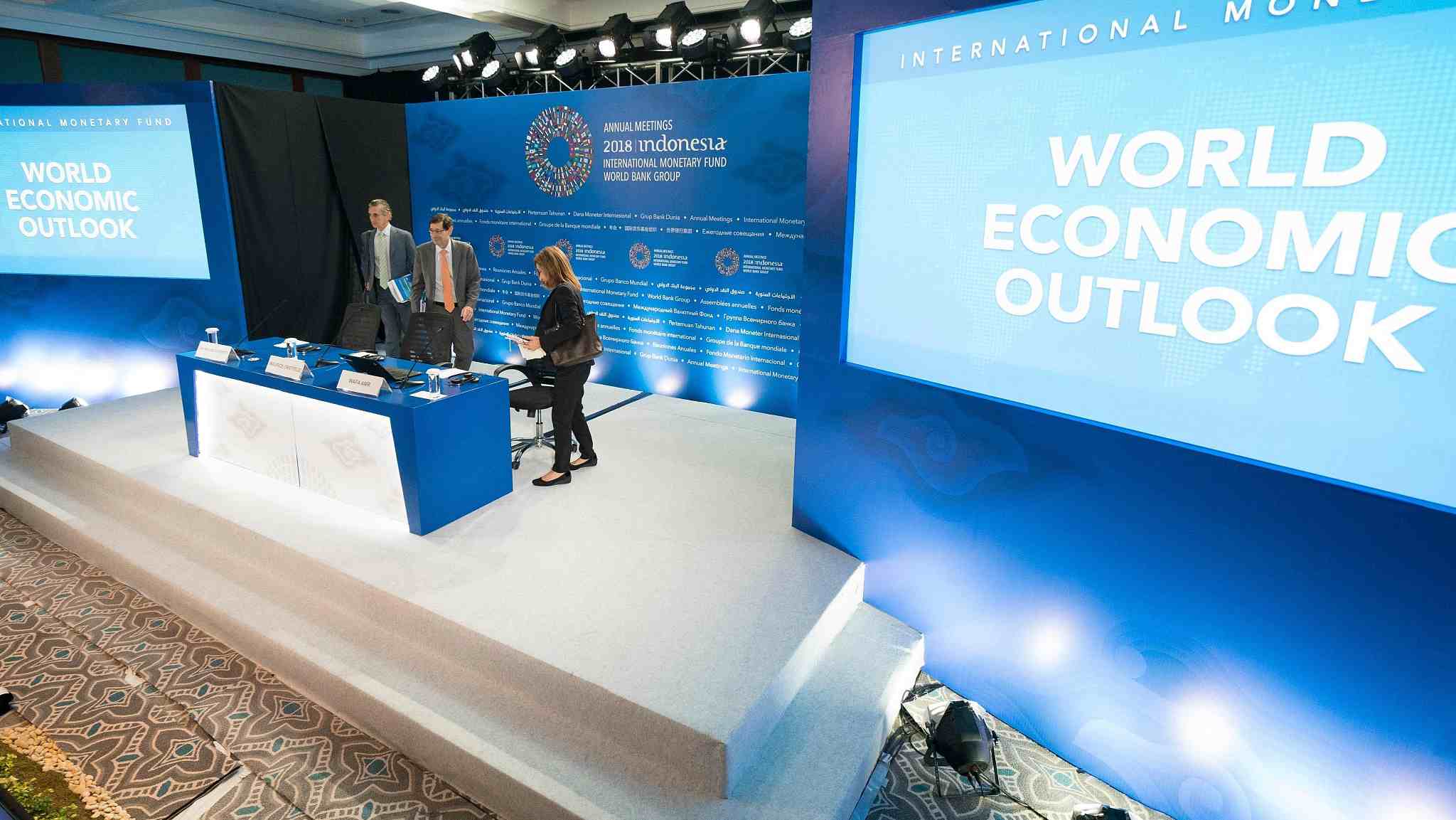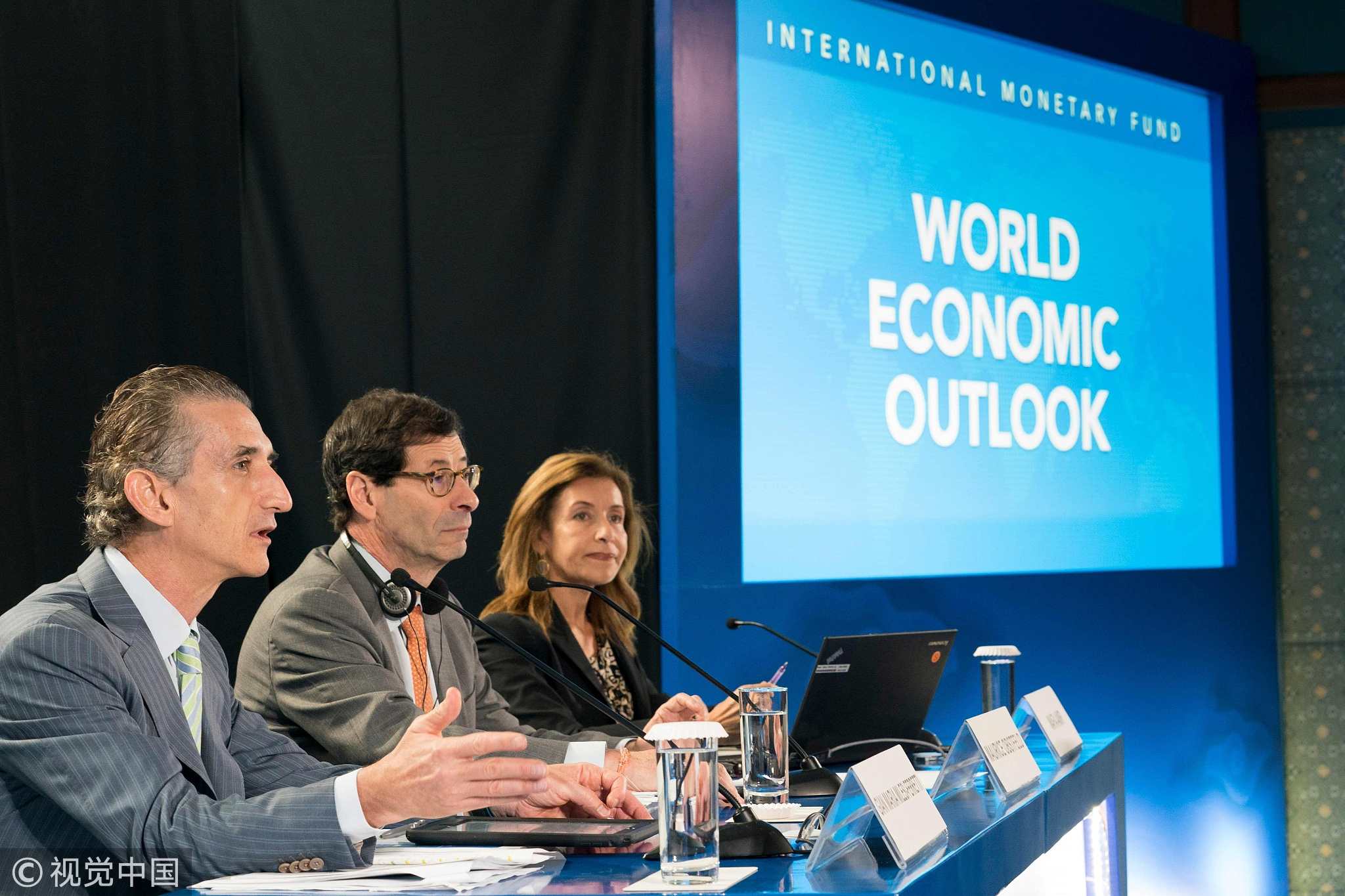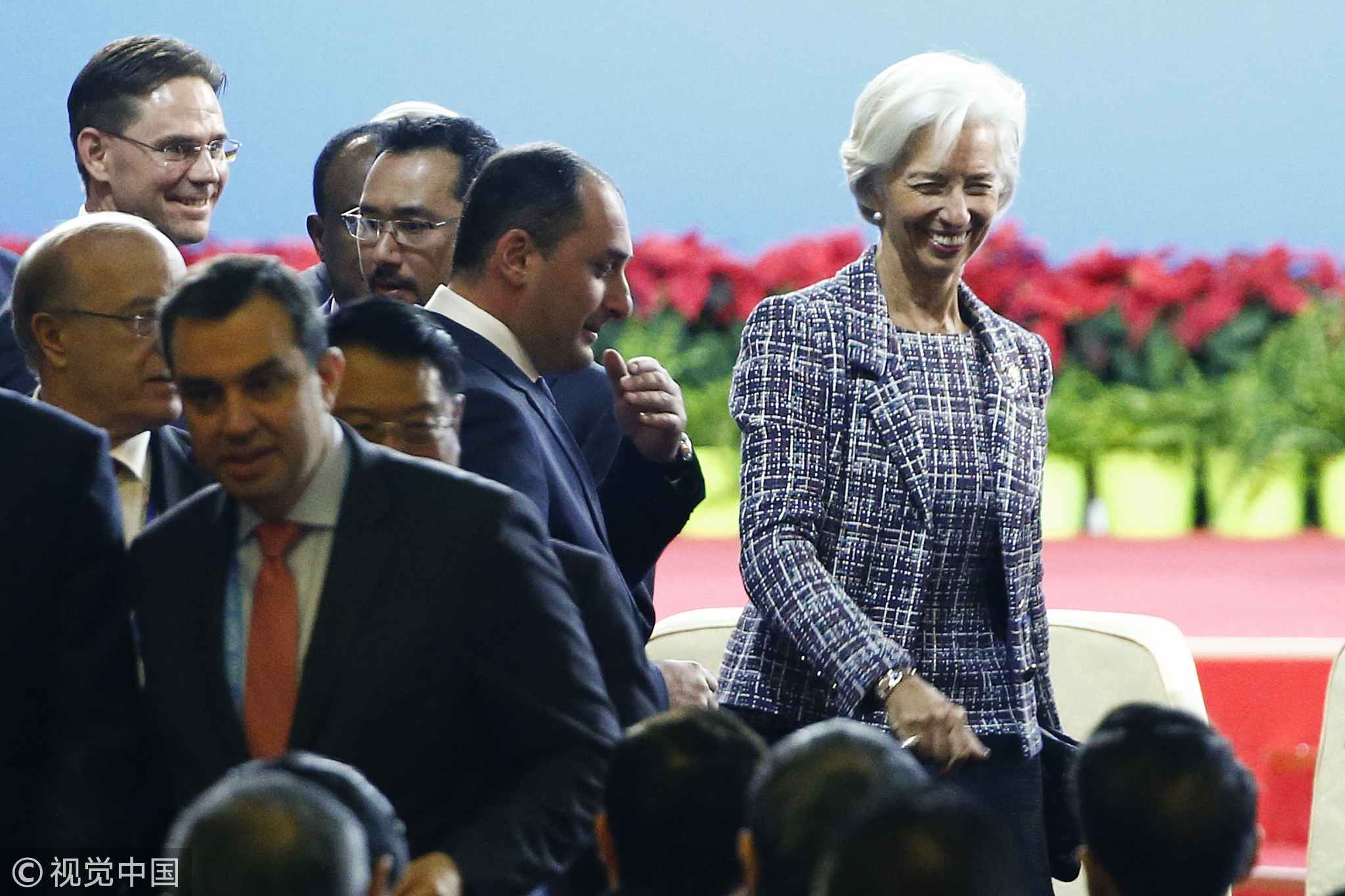
Opinions
21:11, 09-Oct-2018
Opinion: The politicization of IMF is dangerous
Updated
20:41, 12-Oct-2018
By Liu Zhiqin

Editor's note: Liu Zhiqin is a senior fellow of Chongyang Institute for Financial Studies Renmin University. The article reflects the author's opinion, and not necessarily the views of CGTN.
Since the establishment of International Monetary Fund (IMF), it has been the main pillar in international economy. Its most important function is to provide necessary financial aid or loans to weaker economies, mainly in developing countries to support various projects. Most of these loans have played positive roles in favor of the receiving nations.
China and many other countries have surely enjoyed its supports in the past 40 years, which has witnessed China's reform and opening-up process.

International Monetary Fund Economic Counselor Maurice Obstfeld (C), answering questions in the World Economic Outlook press conference during the 2018 IMF/World Bank annual meetings on October 9, in Bali, Indonesia. /VCG Photo
International Monetary Fund Economic Counselor Maurice Obstfeld (C), answering questions in the World Economic Outlook press conference during the 2018 IMF/World Bank annual meetings on October 9, in Bali, Indonesia. /VCG Photo
IMF has played as an "adviser" to the Chinese government. It has provided many helpful suggestions to help China take sound measures or policies to avoid possible risks that China would have to deal with.
The IMF also plays as a "policy-teacher", teaching other countries how to conduct or prepare for economic challenges. During the financial crisis in the past years, IMF helped review China's policies and gave it suggestions, thus helping China avoid possible serious financial fluctuations. It showed that the IMF was professional and target-oriented, its strategy was well welcomed and accepted by the international community.
However, there have been voices from the US calling to block IMF bailouts for China's partners, especially those along the Belt and Road Initiative (BRI). In a letter to Secretary of State Mike Pompeo and Treasury Secretary Steven Mnuchin, 16 senators accuse China of using the loans to control other countries' policies. Such a suggestion is short sighted and very political, that may seriously damage the nature and reputation of IMF.
The purpose of IMF is to provide loans to those countries that are in urgent need to ease their funds shortage. It should be neither a tool nor a weapon to influence other countries' internal affairs. IMF should hold its functions on the financial side, and the politicalizing finance could be used to steer or influence the relevant policies in those countries that have taken loans from IMF.
China's BRI is managed in accordance with international standards and we have close cooperation with all other international financial organizations such as the World Bank, IMF and Asian Development Bank. These organizations have the US as their main investors and influences from the US can't be overlooked.

International Monetary Fund (IMF) Managing Director Christine Lagarde arrives at the opening ceremony of the Belt and Road Forum on May 14, 2017 in Beijing, China. /VCG Photo
International Monetary Fund (IMF) Managing Director Christine Lagarde arrives at the opening ceremony of the Belt and Road Forum on May 14, 2017 in Beijing, China. /VCG Photo
Some scholars have expressed that the US is the real boss behind these financial bodies. But nevertheless based on our research, we found out the IMF has tried to be neutral to all and make every deal equal to each other.
The loans provided by China to BRI countries are also directed by Asian Infrastructure Investment Bank which has been accepted by the world community. So there is really no need to worry about the outcomes of these loans whether they will become a burden of debt for those countries.
As the largest developing country, China has experience handling loans and debt issues. In the past 40 years, IMF and World Bank granted billions of dollars in loans to China. In this process, China learned a lot from implementing the loan agreements with western countries and got to know how to use the loans in key projects within China, thus promoting economic development in a healthier way.
These loans have not become the burden of China's economy but have played as a driving force to benefit our economy.
So there is no reason for IMF to change its principle or rules to support developing countries. It is necessary to help IMF to be more independent and more efficient in order to make further contributions to stabilize the world economic recovery.
(If you want to contribute and have a specific expertise, please contact us at opinions@cgtn.com)

SITEMAP
Copyright © 2018 CGTN. Beijing ICP prepared NO.16065310-3
Copyright © 2018 CGTN. Beijing ICP prepared NO.16065310-3